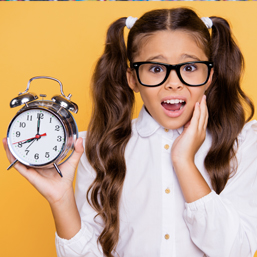
It’s that time of the year again when we need to start thinking about what’s coming next for our children in school. Some children will be starting Kindergarten, starting junior high or high school, or moving to a new school or class next year. These changes can lead to a mix of excitement and worry about what will happen in the future. For most students, these feelings are expected and manageable with some thought. For others, these feelings can be debilitating in the present and jeopardize the ease of the new beginning.
Parents, in collaboration with teachers, can help students make smoother transitions. The key to successful transitions is planning and preparation.
Know your child
As a parent, you know your child best and will be able to recognize signs that indicate how your child will react to a transition. Providing the appropriate level of support when signs are present that your child may have more significant trouble in adapting to a transition will help to ensure a positive outcome. You can get clues if a big transition will be more or less difficult for your child by the way they handle transitions on a day-to-day basis. Some children will show a mix of expected emotions; some will show more significant emotions.
Universal strategies
All students will benefit from initial planning and preparation. Your child will be curious about the upcoming change.
In preparation for a transition, all students will benefit from these universal strategies:
Targeted strategiesSome students will show more worry and a moderate level of concern about the upcoming transition. Rather than dismiss these concerns, it is important to make a
bit more effort and time to help your child make a
smooth transition.
Here are some targeted strategies that may help ease the transition in addition to the universal strategies:
Specialized strategies
Even after providing universal and targeted strategies, a small number of children will have significant problems with transitions. These children will tend to have difficulty adapting to changes in their daily lives and will have a ‘Fight, Flight or Freeze’ response in the face of a significant change, and fears that are out of proportion to the upcoming change.
In addition to the universal and targeted strategies, for these students, it will be important to create an individualized transition plan:
Counseling may help a highly anxious student to learn strategies to deal with transition fears more proactively.
No matter what, planning and preparation will help your child feel more prepared to make any transition. This can make the difference for a successful beginning to a new chapter in your child’s life, limit the time to settle into a new routine and start to realize the benefits that a new setting may bring.
Reprinted from a previous issue of Calgary’s Child Magazine. Dr. Harriet N. Johnston, R. Psych., has been working in the education field for over 20 years as a school psychologist. She teaches university courses on educational psychology topics for teachers and psychologists in training. Dr. Johnston completed additional academic degrees in neuropsychology and neuroscience with experience in brain imaging. Dr. Johnston can be contacted at This email address is being protected from spambots. You need JavaScript enabled to view it.. Dr. R. Coranne Johnson, R. Psych., has been working in the education field for over 30 years as a teacher, administrator and school psychologist. Dr. Johnson can be contacted through her website, helpingchildren.ca.
See our related articles:
Calgary’s Child Magazine © 2024 Calgary’s Child